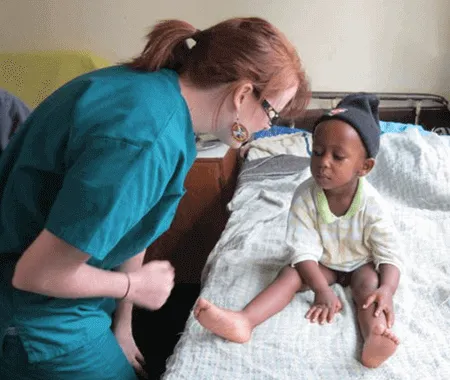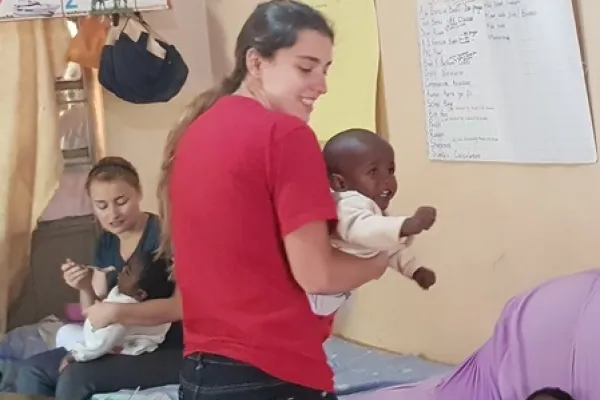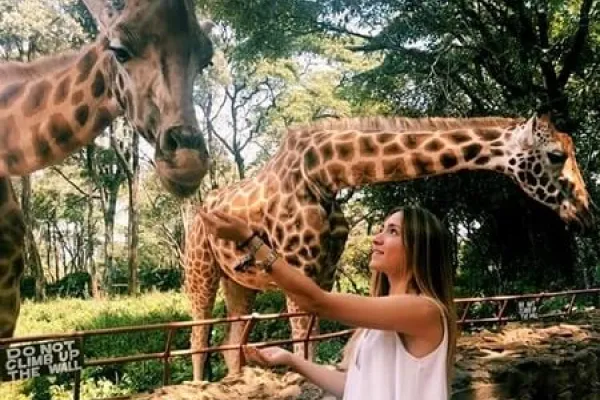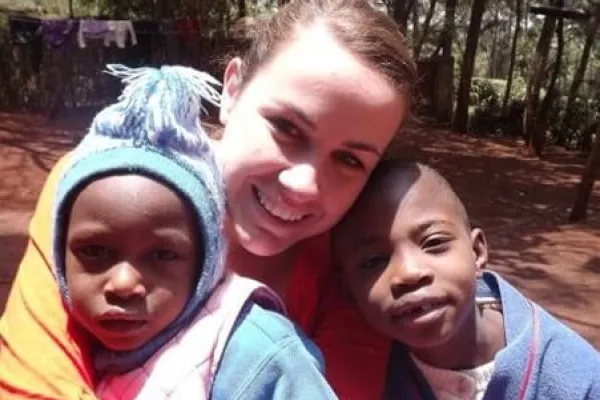Overview
Il Medical and Healthcare Volunteer Project in Kenya è stato ideato per offrire ai volontari entusiasti l'opportunità di fare una differenza significativa nella vita delle comunità svantaggiate. I volontari di questo programma lavorano in una varietà di contesti sanitari, principalmente cliniche mediche e ospedali situati nella periferia di Nairobi e nei dintorni. Che tu sia un professionista medico, uno studente o un aspirante operatore sanitario, questo programma è un'eccellente opportunità per contribuire al miglioramento della salute pubblica in una delle città più vivaci dell'Africa orientale.
Durante il programma avrai la possibilità di dare il tuo contributo in diversi reparti e di contrarre diverse malattie con cui non necessariamente verresti a contatto nel tuo Paese d'origine.
Alcuni dei principali reparti in cui è possibile essere coinvolti nel tirocinio ospedaliero includono:
Dentale
Unità ustioni per bambini
Incidente e Pronto Soccorso
Ambulatoriale
Maternità
Ginecologia e Ostetricia
Salute materna e infantile
Intervento chirurgico - 3 volte a settimana
Reparti Generali
Medicina interna
Unità di terapia intensiva (CCU per pazienti affetti da HIV/AIDS e tubercolosi)
Unità di consulenza
Farmacia
Laboratorio
Dove farò volontariato?
Dal 2008, abbiamo collocato volontari medici e infermieri per tirocini a Nairobi, facilitando opportunità di volontariato per studenti e professionisti qualificati da tutto il mondo presso diversi ospedali e progetti clinici in tutta la città. La maggior parte dei tirocini si trova nella periferia di Nairobi o nelle comunità di baraccopoli di Nairobi. I tirocini sono un mix di ospedali più piccoli e ospedali distrettuali di livello 3 e livello 4.
La tua sede di collocamento verrà assegnata in base alla disponibilità e ai fattori logistici del momento. Si prega di notare che il trasporto da e per il progetto non è incluso nella quota del programma. Il tuo coordinatore locale ti aiuterà a suggerire le opzioni di viaggio più convenienti. In genere i volontari prendono i taxi Uber per raggiungere la sede, il cui costo può essere diviso tra i volontari. Consigliamo di prevedere un budget di circa $ 5-$ 7 al giorno per le spese di trasporto.
Esempio di profilo di collocamento - Ospedale distrettuale di Tigoni
Il Tigoni Hospital è un ospedale distrettuale di livello 4 situato nel distretto di Kiambu West nella circoscrizione di Limuru. L'ospedale ha un totale di oltre 200 posti letto e lettini per i reparti di degenza e ambulatoriali. I servizi offerti dall'ospedale includono servizi prenatali, taglio cesareo, vaccinazioni, diagnosi e trattamenti della tubercolosi, pianificazione familiare, servizi di radiologia e terapia antiretrovirale, per citarne solo alcuni. Il numero di pazienti che visitano l'ospedale può variare ogni giorno.
Tirocini elettivi medici
Volunteering Solutions offre una varietà di tirocini elettivi su misura per le esigenze specifiche degli studenti che si formano nel campo medico. Tra questi:
Corsi elettivi di medicina per aspiranti medici e studenti di medicina
Corsi elettivi di infermieristica per futuri infermieri e operatori sanitari
Corsi opzionali di ostetricia per studenti specializzati in assistenza materna e neonatale
Corsi opzionali di odontoiatria per studenti di odontoiatria che desiderano acquisire esperienza nel reparto odontoiatrico di un ospedale
Questi corsi opzionali sono specificamente progettati per soddisfare gli obiettivi di apprendimento degli studenti nel campo medico. Che tu sia ancora in formazione o un neolaureato che desidera ampliare le proprie competenze, questo programma offre una preziosa esperienza pratica in un contesto reale.
Il team di Volunteering Solutions nel Regno Unito e il team in Kenya possono aiutarti a completare tutte le pratiche burocratiche richieste, fornire valutazioni dei rischi e firmare le ore per garantire che il tirocinio sia conforme ai requisiti della tua università.
Facendo volontariato nel Progetto di volontariato medico in Kenya, non solo contribuirai a migliorare i risultati dell'assistenza sanitaria nelle aree meno servite, ma acquisirai anche un'esperienza lavorativa di inestimabile valore che migliorerà il tuo sviluppo professionale e arricchirà il tuo percorso personale.
Orario di lavoro volontario
Orario di lavoro volontario
Il programma generale per i volontari del programma a Nairobi è il seguente:
Domenica - Arrivo a destinazione del programma
Lunedì - Orientamento + introduzione al tirocinio (tragitto + personale locale + personale ospedaliero + posti dove mangiare, ecc.). Il coordinatore locale terrà una sessione di orientamento, che coprirà argomenti quali sicurezza, cultura, lingua, luoghi da visitare, comportamento, cibo e altri suggerimenti su cosa fare in Kenya.
Martedì a Venerdì - Lavoro volontario
Colazione - dalle 07:30 in poi (fornita presso la struttura ricettiva)
Partenza per il progetto - 08:00 am
Orario di lavoro presso il tirocinio: dalle 09:00 alle 16:00
Pranzo - dalle 13:00 alle 14:00 (i volontari devono gestire il pranzo autonomamente)
Cena - dalle 19:30 in poi (fornita presso la struttura ricettiva)
Lo stesso programma di volontariato continua dalla seconda settimana in poi
Fine settimana - Tempo libero per esplorare la città e svolgere attività come:
Visita l'orfanotrofio degli elefanti, il centro delle giraffe e il villaggio dei mamba
Visita i mercati locali e acquista souvenir
Andare in safari
Trascorri del tempo nella foresta di Karura in città
Per coloro che sono inclini a viaggiare più lontano per attività divertenti, si può andare in bicicletta all'Hell's Gate National Park a Naivasha (1,5 ore dalla sistemazione), scalare il monte Longonot (1,5 ore dalla sistemazione) o visitare le Thompson Falls (3 ore dalla sistemazione). Si può anche andare a Mombasa e provare le spiagge sabbiose nei fine settimana.
Nota: si prega di notare che il programma potrebbe variare a seconda del progetto specifico a cui partecipa il volontario.
Ruoli e responsabilità dei volontari
Ruoli e responsabilità dei volontari
I compiti dei volontari variano e dipendono dal livello di esperienza, dalle qualifiche e dalla formazione medica. Il ruolo dei volontari nel programma è principalmente di osservazione, tuttavia potrebbe essere assegnato un lavoro pratico di base. Sebbene il lavoro pratico non possa essere garantito nel programma in quanto dipende dalla tua sicurezza e dal tuo livello di abilità, nonché dal consenso del paziente e del personale medico, i volontari passati sono stati coinvolti in attività di base come il controllo della pressione sanguigna, la conduzione di visite, il lavoro in aree di salute materna, chirurgia, laboratori, consulenza e test.
Offriamo tirocini a studenti in qualsiasi fase dei loro studi, da coloro che hanno appena iniziato il loro percorso medico a coloro che desiderano migliorare le proprie competenze pratiche dopo la laurea. Questa flessibilità consente ai volontari di acquisire esperienza e ampliare le proprie prospettive in diversi momenti della loro carriera.
Per gli studenti di medicina, l'opportunità di osservare le procedure, assistere nelle pratiche sanitarie quotidiane e interagire con i team sanitari locali fornisce esperienze di apprendimento uniche che sono difficili da trovare nei tradizionali contesti accademici. Questi tirocini offrono inoltre agli studenti la possibilità di vedere come funzionano i sistemi sanitari nei paesi in via di sviluppo, dando loro una prospettiva globale sulla medicina.
Project Requirement
Project Requirement
I volontari devono avere almeno 18 anni al momento dell'adesione al progetto. I partecipanti devono avere una mente aperta e un atteggiamento flessibile per lavorare in un ambiente nuovo e diverso. Il volontario dovrebbe portare energia ed entusiasmo per fare la differenza. I volontari medici devono fornire un rapporto di controllo dei precedenti penali pulito, CV, copia del passaporto, nonché altri documenti e credenziali relativi alle loro qualifiche prima di aderire al programma. Gli studenti di Pre Med, Medicina, Infermieristica, CNA e studenti di ostetricia possono aderire al programma.
Schedule a Google Meet with a Program Advisor
Interested in our programs? We're here to provide expert guidance
- Get Detailed Info
- 20 min One -on-One meeting
- Get expert advise
- Application Guidance
Photo Gallery
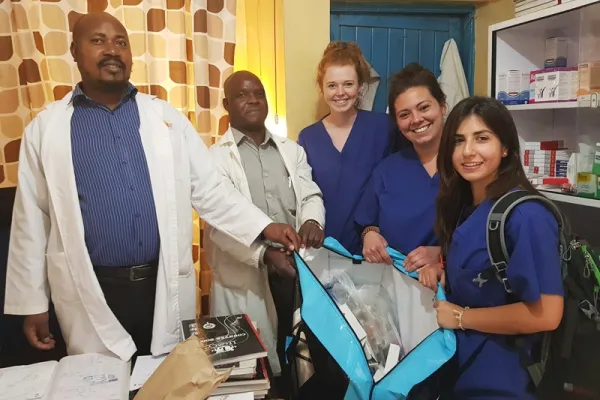
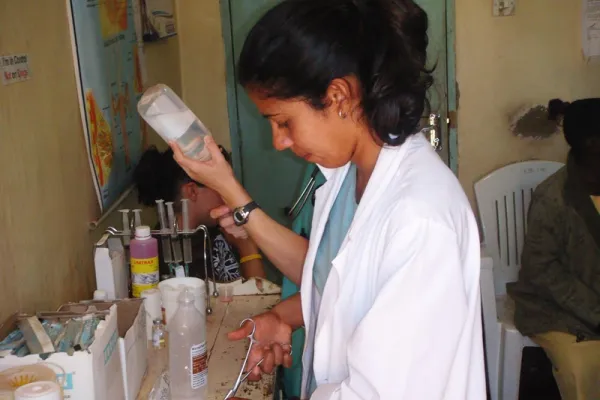
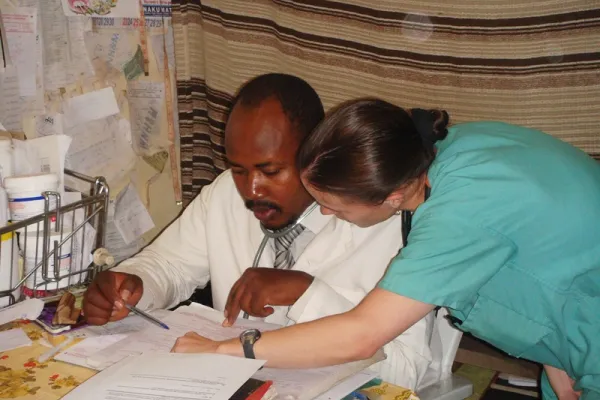
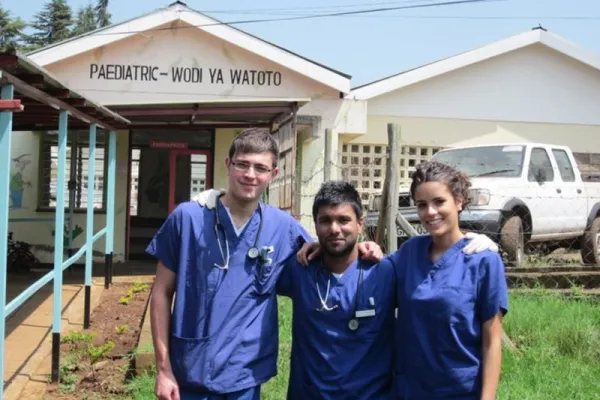
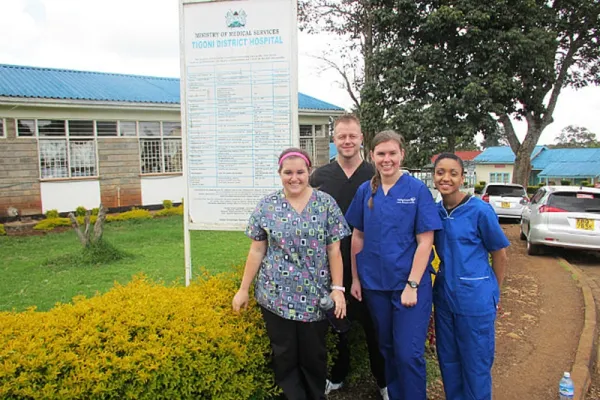
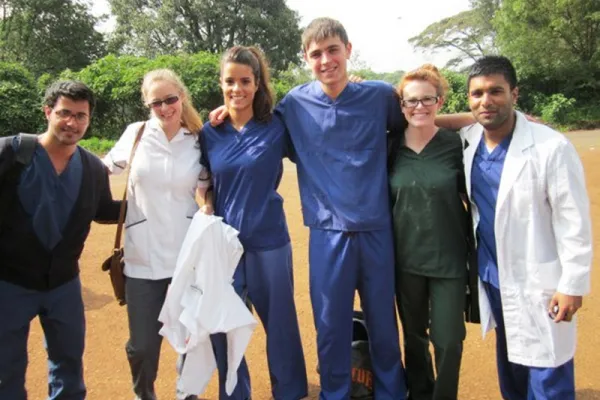
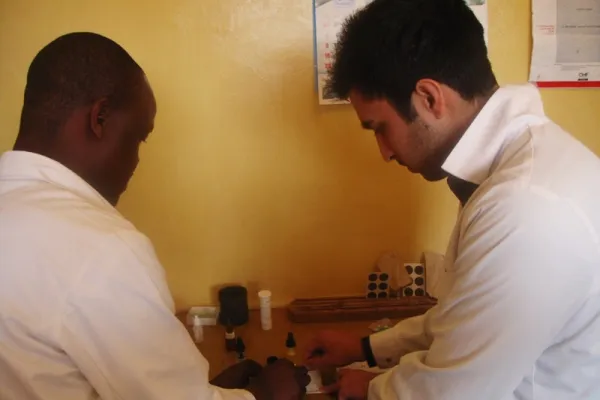
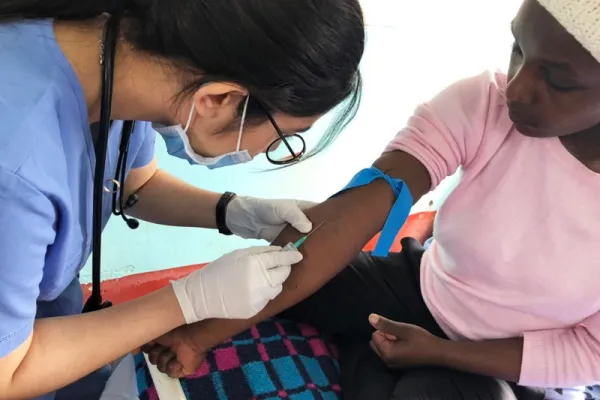
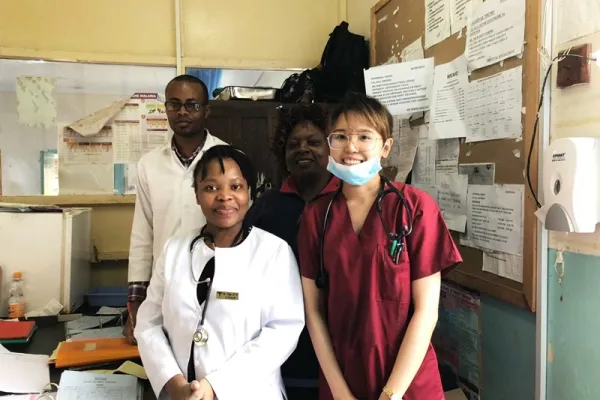
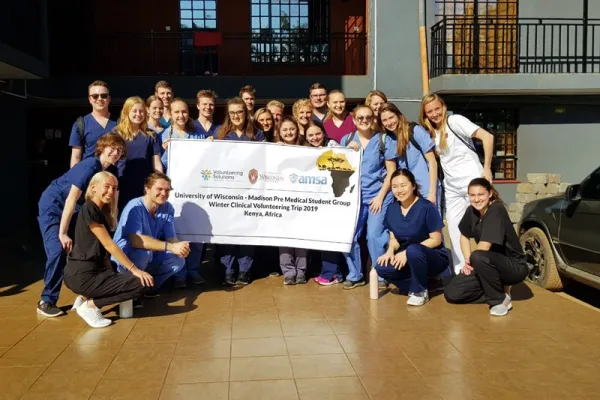
Living
Living
Fai solo le valigie e atterra a Nairobi e inizia a lavorare al tuo posto di volontariato. Il resto lo gestiamo noi, dai tuoi trasferimenti aeroportuali, al tuo soggiorno, ai tour gastronomici e del fine settimana, gestiamo e facilitiamo tutto per te.
Trasferimento aeroportuale
Sarai accolto dal nostro rappresentante all'aeroporto internazionale Jomo Kenyatta di Nairobi da dove verrai trasferito agli alloggi a Nairobi stessa. I volontari che saranno già in Kenya o arriveranno via terra dovrebbero fornirci i loro dettagli di contatto in modo che il ritiro possa essere organizzato da un luogo specifico.
Struttura ricettiva
Gli alloggi per i volontari sono forniti in una casa di volontariato o in una famiglia. La casa del volontario è curata da localhost e dispone di tutti i comfort moderni per garantire un soggiorno confortevole ai volontari. Alcuni dei servizi disponibili sono docce, forno a microonde e frigorifero in cucina e un'area salotto per i volontari. Le stanze nella casa dei volontari sono tipiche stanze in stile dormitorio con 4-8 partecipanti dello stesso sesso che condividono una stanza.
Orientamento
Un orientamento di mezza giornata sarà fornito dal nostro personale a Nairobi.Aree come la cultura, la sicurezza, i luoghi, i trasporti sono coperti nell'Orientamento. Al termine del tuo orientamento, verrai presentato al tuo progetto.
Pasti
Ai volontari vengono forniti 2 pasti (colazione e cena) nei giorni feriali e tre pasti durante i fine settimana. I pasti tipici includono Ugali, Chapatti, Chai (tè), pane e riso con verdure e frutta. I volontari acquistano anche forniture dai supermercati e portano con sé cibi confezionati cucinati da soli per il progetto.
Durante il tuo tempo libero
La maggior parte dei volontari fa viaggi safari nei fine settimana. I volontari di solito prendono i due giorni o il safari esteso di tre giorni. Mentre sei a Nairobi puoi esplorare i diversi luoghi di interesse della città.
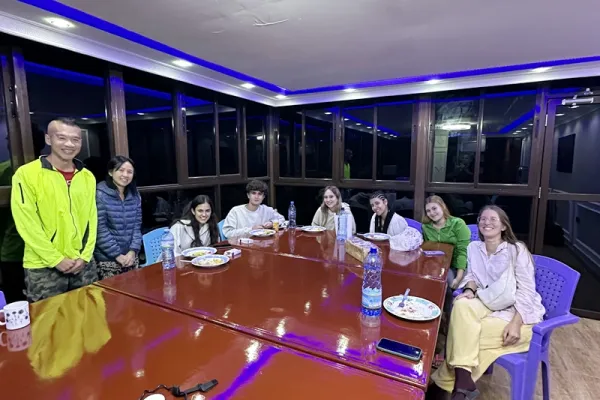
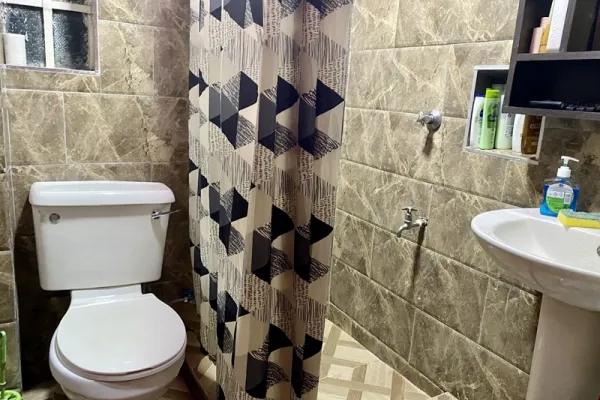
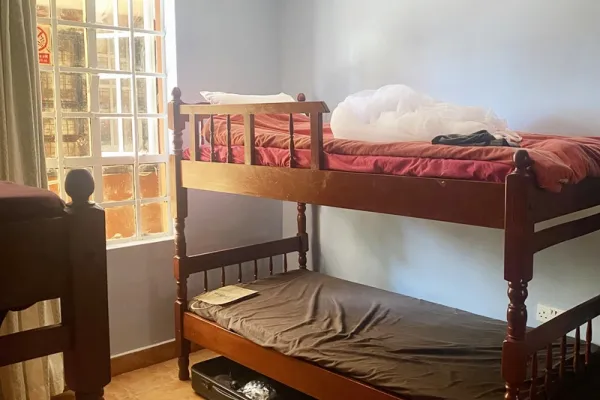
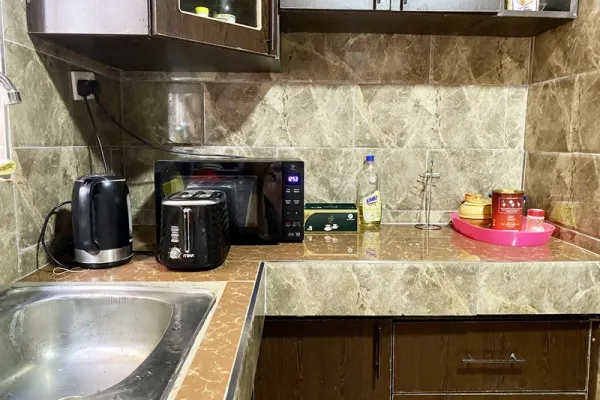
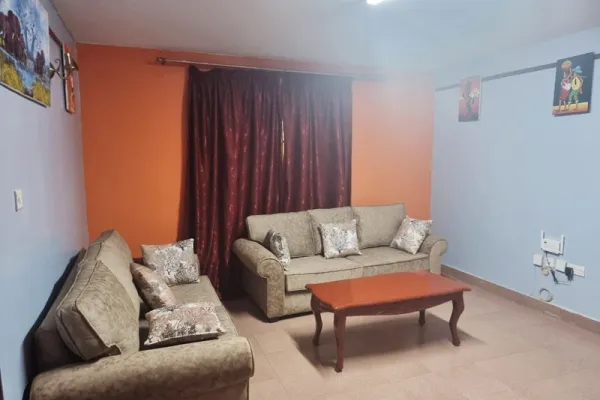
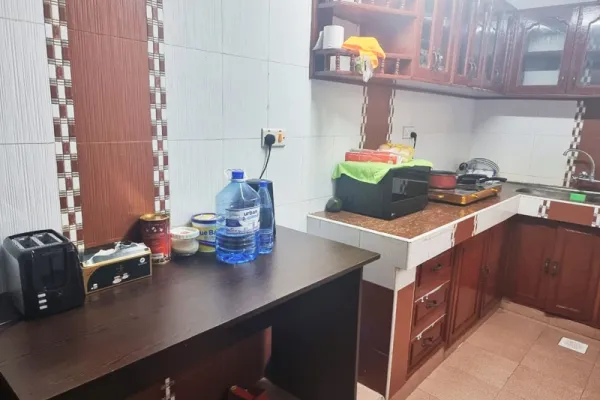
Dates
Dates
January
05
12
19
26
February
02
09
16
23
March
02
09
16
23
30
April
06
13
20
27
May
04
11
18
25
June
01
08
15
22
29
July
06
13
20
27
August
03
10
17
24
31
September
07
14
21
28
October
05
12
19
26
November
02
09
16
23
30
December
07
14
21
28
January
04
11
18
25
February
01
08
15
22
March
01
08
15
22
29
April
05
12
19
26
May
03
10
17
24
June
07
14
21
28
July
05
12
19
26
August
02
09
16
23
30
September
06
13
20
27
October
04
11
18
25
November
01
08
15
22
29
December
06
13
20
27
Available
Filling Fast
Booked Out
Costs
| Duration |
Program Fee
|
Choose your currency
|
|---|---|---|
| 1 Week | $350 | |
| 2 Weeks | $480 | |
| 3 Weeks | $610 | |
| 4 Weeks | $740 | |
| 5 Weeks | $870 | |
| 6 Weeks | $1000 | |
| 7 Weeks | $1130 | |
| 8 Weeks | $1260 | |
| Extra Week | $150 |
Please Note: An application fee of is charged over and above the program fee as an application payment. A 5% international banking fee is charged for credit card payments of program fee in USD/AUD.
Per cosa stai pagando?
- 24 ore Assistenza e supporto da parte del personale
- Informazioni complete prima della partenza
- Ritiro dall'aeroporto
- Orientamento
- Cibo - 2 pasti al giorno
- Alloggio
- Assicurazione medica e di viaggio (disponibile a un costo aggiuntivo)
Cosa NON è incluso?
- Biglietto aereo
- Viaggio di ritorno all'aeroporto (può essere organizzato a un costo aggiuntivo)
- Trasporto locale
- Visti
- Vaccinazioni
FAQ's
Application and Program Details
-
Are there any necessary requirements to participate in the Kenya volunteer programs?
-
Yes, the program requirements are as follows:
Volunteers must be 17 years or older at the time of joining the program.
Need to have an open mind and flexible attitude for working in a new and different environment. Keep your expectations real and humble.
The volunteer should bring energy and enthusiasm to make a difference.
Participants must be in good health.
For Medical /Healthcare Program, participants must be at least 18 yrs old and be a Pre-Medical, Medical, Nursing Students or Medical Professional. Participants possessing other qualifications such as CNA, midwives are also welcome to join the program. All medical program participants need to provide a copy of their certifications/ credentials along with their passport copies. -
Can I volunteer as part of a group?
-
We encourage our participants to volunteer in a group. We take special care in providing you a placement and also customize your itinerary to make sure you get exactly what you are looking for. Also, we can design special group programs for groups of 5 or more. Our programs are designed to be safe, affordable and offer a great group volunteering experience to the volunteers.
In our experience of more than 12+ years we have enabled and facilitated volunteer program placements for college groups, university groups, high school groups, group of families, group of couples as well as groups of colleagues.
Kenya is one of our popular destination among student groups and is highly recommended for family volunteering as well. -
What is the best time to apply for volunteer programs in Kenya?
-
VolSol recommends all its volunteers to apply well in advance. Our major booking seasons are from January to July and September to December.
As we have limited spots available in our programs and we serve on first come first basis, it is strongly recommended to apply for the program and reserve your spot in the program well in advance. You can book your spot in the program by filling an online form and pay the application fee.
Once you complete your application, your individual 'My Account' will be active in which you will receive your placement confirmation after which you can pay the program fees. You can pay the program fees later as well in installments, but 45 days before the program starts. -
Can I know more about the Program Location in Kenya?
-
Volunteering Solutions offers programs in Nairobi and its suburbs such as Kikuyu, Riruta, Zambezi and Kawangware. Popularly known as ‘Green City in the Sun’, Nairobi is the capital of Kenya and is the largest city in the country.
-
How long does it take to process my application? Will my application be accepted?
-
After you complete your application, your personalized ‘My Account’ will be active.You will need to upload your CV/Resume along with your photo in the same. Our backend team and the placement site takes around 10-12 days to review your application. After we review your CV and documents, your booking is confirmed and booking confirmation is updated in your ‘My Account’. Some projects need a mandatory criminal background check and the same is mentioned in the project info of your program. Approval of your application depends on your qualification and eligibility criteria for each project.
-
When do I need to arrive in Kenya for my program? What will happen once I arrive in Kenya?
-
All volunteers need to arrive on the mentioned program arrival dates.
Volunteers are picked up from the Jomo Kenyatta International Airport (NBO) in Nairobi, by the in-country coordinator or representative and will be transferred to the accommodation. Those who are arriving overland or are already in Kenya? will be picked up at a meeting point decided beforehand.
Flights and Visa
-
Do I need to take a Visa to go to Kenya?
-
Participants can attain the Visa on arrival at Nairobi airport or can apply for Kenyan Visa beforehand at the nearby embassy. Citizens of most of the countries can get Visa on arrival at the airport in Nairobi. Further details will be provided in the Pre-departure booklet for the participants.
-
What are the recommended airlines to fly to Kenya?
-
Jomo Kenyatta International Airport in Nairobi is the busiest airport in East Africa and serves as the hub for international flights in that region. It is well connected with flights from major European, Middle Eastern and Asian cities.
Some of the major airlines operating in Kenya are:
Kenya Airways
British Airways
Turkish Airlines
KLM Dutch Airlines
Swiss Air
Emirates
Etihad Airways
Egypt Air
Accommodation and Living
-
How do I get to the program location?
-
After providing the Orientation about city, placement, project and culture, your in-country coordinator will take you to your project placement on the first day and introduce you to everyone. You will be given the directions to reach the project location from your accommodation and briefed about the mode of transport to be used.
-
What clothing is appropriate? Any cultural restrictions?
-
We recommend comfortable, casual and semi-casual clothing: sweat shirts, shorts, jeans, skirts and any other daily wear. It is recommended to include warm clothing for nights, especially if you are volunteering in July and August. Avoid flashy and expensive items such as jewelry etc.
While traveling, it is recommended to follow local etiquette and customs. Female volunteers need to wear pants and/or long skirts. Dressing in Nairobi is quite liberal. However, approach it with cultural sensitivity in mind. You will be provided with a kit list in your pre-departure? booklet. As for footwear, hiking boots, old sports shoes or open-toed sandals are recommended. -
Can I know more about accommodation and food arrangements?
-
The accommodations are provided in a volunteer home in Nairobi. The volunteer’s home is well equipped with all the modern amenities to ensure a comfortable stay for the volunteers. In certain cases, volunteers are also accommodated in the orphanage project premises itself.
Volunteers are provided two meals a day. Breakfast usually comprises of toast, tea, fruits, ?and eggs. Dinner usually comprises traditional Kenyan or Western foods. -
Are there more expenses once I arrive in Kenya?
-
Your program fee covers your food, accommodation, airport pick-up, orientation, pre-departure information and in-country staff support. You will need to cover yourself for your personal expenses, such as traveling, airport drop, telephone, the internet, shopping, sightseeing etc. Traveling to Kenya is cheap; however, you should carry around $50 - $75 per week for your basic personal expenses, such as water, local transport, phone etc. The cost for return airport transfer is around $50.
For organizing weekend excursions, the in-country coordinator will help you to book the same at the best prices. -
Can vegetarians be accommodated?
-
Yes - please do ensure that you inform the local team about your food preference and they can help ensure you are able to order the best food! Also, please do mention your specific food preference in the application form as well.
-
For how many hours will I volunteer every day?
-
Volunteers usually work for 5 to 6 hours a day, for 5 days a week depending on their program. You will have weekends free to explore in and around the city. However, volunteers need to be flexible, open minded and understand that work requirements can change as well on certain occasions.
-
Would I have free time during my program ? Can I do sightseeing during my program?
-
Volunteers work for 5-6 hours in a day for 5 days a week depending on the program requirements. You will have the evenings and weekends free for you to explore in and around the city. During the weekends, you can take a safari to Masai Mara and Lake Nakuru National Park or the Nairobi National Park. You can also go on a short excursion and interact with the locals, learn about their cuisines and customs. In Nairobi, volunteers can visit Masai market, Bomas of Kenya, Giraffe center and Carnivore Restaurant.
We encourage our volunteers to travel. We have designed various weekend tours which can be booked under the ‘Add-on Tours’ section in your ‘My Account’. You in-country coordinator will also help you book and organize the tours once you are in the country. -
Where can I change my money in Kenya? Are there ATMs in Kenya?
-
You can change money at any bank or at the airport by showing your passport. Volunteers can exchange money at the currency exchange counters located at the airport. There are ATMs located all around the capital city, Nairobi.The major banks in Kenya are Barclays, Equity Bank, NIC Bank and Kenya Commercial Bank.
Connect with Past Volunteers
-
How can I connect with past and current volunteers of Kenya?
-
We encourage volunteers to get in touch with former Volunteering Solutions participants and also other program participants joining our projects. You are recommended to join the Volunteering">https://www.facebook.com/VolunteeringSolutions/">Volunteering Solutions Facebook Page or Facebook">https://www.facebook.com/groups/volunteeringsolutions/">Facebook Group to connect with other participants and our team.
To read alumni interviews from past participants, visit ?the Meet">https://www.volunteeringsolutions.com/meet-a-volunteer">Meet a Volunteer section on our website.
Health and Safety
-
Do I need to buy health insurance?
-
Yes, for all volunteers it is mandatory to have a travel medical insurance. To provide the best option to our participants, we offer comprehensive insurance coverage in collaboration with a leading insurance provider.
-
How safe is Kenya and Nairobi in particular?
-
Kenya is one of the most popular destinations of the world visited by many tourists and nature enthusiasts. The Kenyan people are very warm and friendly towards foreigners.
Volunteers are informed about the necessary safety precautions during the Orientation session as well as in the pre-departure information guide. You will have the assistance and support of the in-country coordinator in Kenya. It is strongly recommended to follow the safety rules and regulations provided by the in-country coordinator. -
What immunizations/vaccinations will I need?
-
Participants are recommended to consult their travel doctor before their arrival in Kenya.
All travelers are required to carry an International Certificate of Vaccination (Yellow Card) to show proof of yellow fever immunization.
The recommended vaccinations are as follows:
Yellow Fever
Hepatitis A and B
Typhoid


























